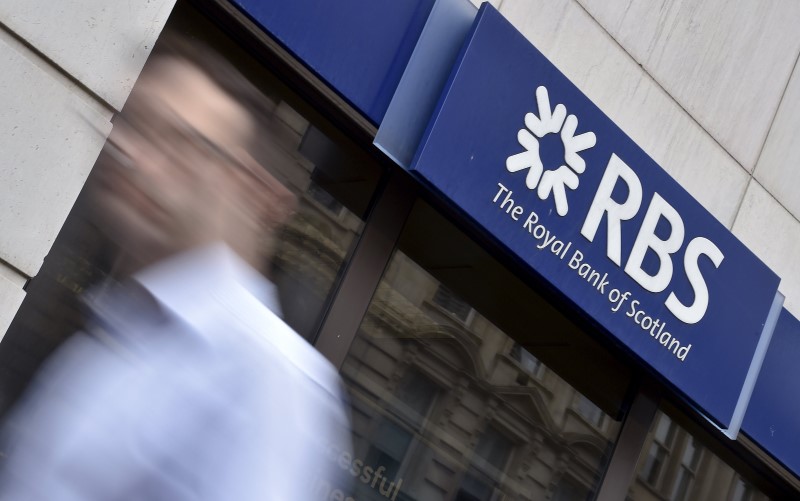By Richa Naidu and Jane Merriman
LONDON (Reuters) - Royal Bank of Scotland (RBS) (L:RBS) shares slumped to their lowest in more than three years on Friday as the state-backed bank reported its eighth straight full-year loss and said past mistakes would put shareholder payouts on ice until 2017.
Once, briefly, the world's largest bank by assets, RBS has spent the eight years since its 45 billion pound ($63 billion) government bailout cutting costs, reorganising its businesses and wading through a series of legal scandals.
The 300-year-old lender said it now expected a "potentially elongated period" before settling claims that it mis-sold U.S. mortgage-backed bonds before the 2007-09 financial crisis.
Bracing for one the biggest regulatory penalties in its history, RBS has set aside 3.8 billion pounds ahead of the judgement and said the related costs and provisions meant it was unlikely to resume dividends before the first quarter of 2017.
Chief Executive Ross McEwan will not take a bonus but his total compensation in 2015 more than doubled to 3.78 million pounds due to the maturing of a long-term incentive plan.
The bank is also grappling with a carve-out of branches under the Williams & Glyn brand, which must be completed by the end of 2017, as a condition of its crisis-era bailout.
Restructuring costs rose to 2.9 billion pounds, while litigation and conduct costs soared 63 percent to 3.57 billion.
RBS shares were down 8.2 percent at 224 pence by 1035 GMT. The stock has lost about a fifth of its value so far in 2016, partly reflecting broader concerns about the stability of the banking industry in a weakening global economy.
PLAYING HAVOC
"RBS is the Jekyll and Hyde of the UK banking sector, and at the moment it's hard to see who is in control," Laith Khalaf, Senior Analyst at Hargreaves Lansdown (L:HRGV), said in a note.
"On the one hand the bank is downsizing, de-risking and cost-cutting, while at the same time conduct charges are playing havoc with overall profitability," Khalaf added.
RBS's weak performance and plunging valuation will come as a blow to the government, which still owns 73 percent, and was expected to begin selling its stake in earnest within 12 months.
RBS, which has not turned a profit or paid a dividend since its bailout, said it would make a final 1.2 billion pound payment to Britain's finance ministry to cancel an arrangement that gives the state priority over its dividends.
It said its full-year loss narrowed by 43 percent to $2.75 billion and it was targeting operating cost cuts of 800 million pounds in 2016.
"This is an area where we must continue to be disciplined given the uncertain macroeconomic and low interest rate environment our core businesses face," said McEwan.
The bank expects its pace of growth to help income stabilise in 2016 despite these economic concerns.
Chairman Howard Davies said the bank was well placed to manage uncertainty stemming from Britain's potential exit from the European Union, but the impact would be unwelcome, having looked hard at what 'Brexit' would mean for the bank.

($1 = 0.7141 pounds)